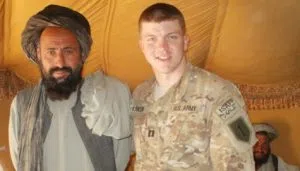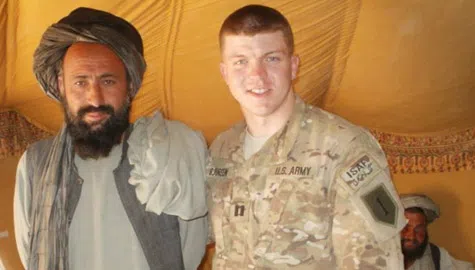 Major Daniel Sjursen is proud of his service and the service of the soldiers he fought with in Iraq. What he doesn’t see is an understanding of the reality of the Iraq war for either Iraqis, Americans or U.S. veterans.
Major Daniel Sjursen is proud of his service and the service of the soldiers he fought with in Iraq. What he doesn’t see is an understanding of the reality of the Iraq war for either Iraqis, Americans or U.S. veterans.
“In our small ways we did the best to mitigate the effects of what was, in fact, a catastrophic war.” Sjursen says.
In his book “Ghost Riders of Baghdad: Soldiers, Civilians, and the Myth of the Surge,” Sjursen writes about his experiences as a platoon leader in Iraq. He tells Steve Fast that a victory in the war wasn’t something that can be claimed by U.S. forces. Nor can any political policy be explicitly blamed for the country’s struggles.
“We can’t place America at the center of all causality in the Middle East,” Sjursen says. “What we left behind during the Surge was an unstable, Shia-dominated government that was unwilling to work with the Sunni moderates.”
Sjursen now teaches history at West Point. He says many of his students lack much of an understanding of the recent history of military engagement in Iraq in Afghanistan. He believes that is because of a disengaged public. This, in his view, is creating a gap between policy and the stakes of military engagement for the troops. Policy makers don’t, themselves has as much “skin the game.”
“Harvard has as many graduates killed in the Second World War as West Point did,” Sjursen says. “The military is no longer representative of the whole.”
Listen to the interview: Major Daniel Sjursen on the Steve Fast Show
Follow Steve Fast on Twitter @SteveFastShow





